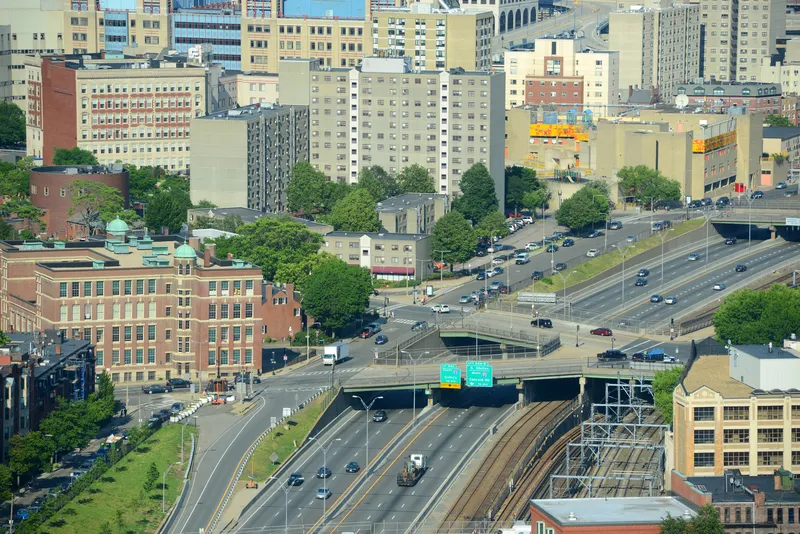In an effort to boost a weakening economy, Chilean President Michelle Bachelet has announced a nearly US$4.2 billion transport infrastructure plan, including one new metro line in Santiago, cable car systems in three other cities and rail projects.
The plan includes US$1.9 billion in new concessions, with the expansion of public-private partnerships (PPPs) to the metro system and US$2.2 billion in works directly funded by the government.
In Santiago, the program involves developing feasibility studie
November 7, 2014
Read time: 2 mins
In an effort to boost a weakening economy, Chilean President Michelle Bachelet has announced a nearly US$4.2 billion transport infrastructure plan, including one new metro line in Santiago, cable car systems in three other cities and rail projects.
The plan includes US$1.9 billion in new concessions, with the expansion of public-private partnerships (PPPs) to the metro system and US$2.2 billion in works directly funded by the government.
In Santiago, the program involves developing feasibility studies for a new metro line under a PPP model to alleviate congestion on line No. 1, which runs east-west and transports 43 per cent of the subway's passengers.
The president also detailed plans to extend line No. 3, currently under construction, and line No. 2, with a total investment of US$1.17 billion.
The government will also invest an additional US$317 million in expanding metro capacity with new trains.
State company Metro de Santiago is currently building the 22km-long line No 3, which will connect Ñuñoa in eastern Santiago and Huechuraba in the north of the city, and line 6, a US$1.06 billion project that will run 15.3 kilometres from centrally located Providencia to Cerrillos in the west.
The government will also build three cable car systems in northern Iquique and Antofagasta cities and in central Valparaíso, an investment of US$386 million.
In southern Chile, the government will add five kilometres to Concepción's urban rail system and will carry out feasibility studies to add new railway lines in Temuco and Puerto Montt.
Two days ago, Bachelet announced new concessions of US$6-8 billion, on top of the national infrastructure plan announced earlier this year that includes US$9.9 billion in new concessions through 2020, and US$18 billion in public works projects through 2021, including highways, airports and reservoirs.
"This is new and additional. It's a renewed concessions portfolio in public transport, urban and suburban highways and ports for US$6 billion to US$8 billion," Bachelet told reporters.
Bachelet aims to increase public infrastructure spending to 3.5 per cent of GDP by the end of the decade from the current 2.5 per cent.
The plan includes US$1.9 billion in new concessions, with the expansion of public-private partnerships (PPPs) to the metro system and US$2.2 billion in works directly funded by the government.
In Santiago, the program involves developing feasibility studies for a new metro line under a PPP model to alleviate congestion on line No. 1, which runs east-west and transports 43 per cent of the subway's passengers.
The president also detailed plans to extend line No. 3, currently under construction, and line No. 2, with a total investment of US$1.17 billion.
The government will also invest an additional US$317 million in expanding metro capacity with new trains.
State company Metro de Santiago is currently building the 22km-long line No 3, which will connect Ñuñoa in eastern Santiago and Huechuraba in the north of the city, and line 6, a US$1.06 billion project that will run 15.3 kilometres from centrally located Providencia to Cerrillos in the west.
The government will also build three cable car systems in northern Iquique and Antofagasta cities and in central Valparaíso, an investment of US$386 million.
In southern Chile, the government will add five kilometres to Concepción's urban rail system and will carry out feasibility studies to add new railway lines in Temuco and Puerto Montt.
Two days ago, Bachelet announced new concessions of US$6-8 billion, on top of the national infrastructure plan announced earlier this year that includes US$9.9 billion in new concessions through 2020, and US$18 billion in public works projects through 2021, including highways, airports and reservoirs.
"This is new and additional. It's a renewed concessions portfolio in public transport, urban and suburban highways and ports for US$6 billion to US$8 billion," Bachelet told reporters.
Bachelet aims to increase public infrastructure spending to 3.5 per cent of GDP by the end of the decade from the current 2.5 per cent.









